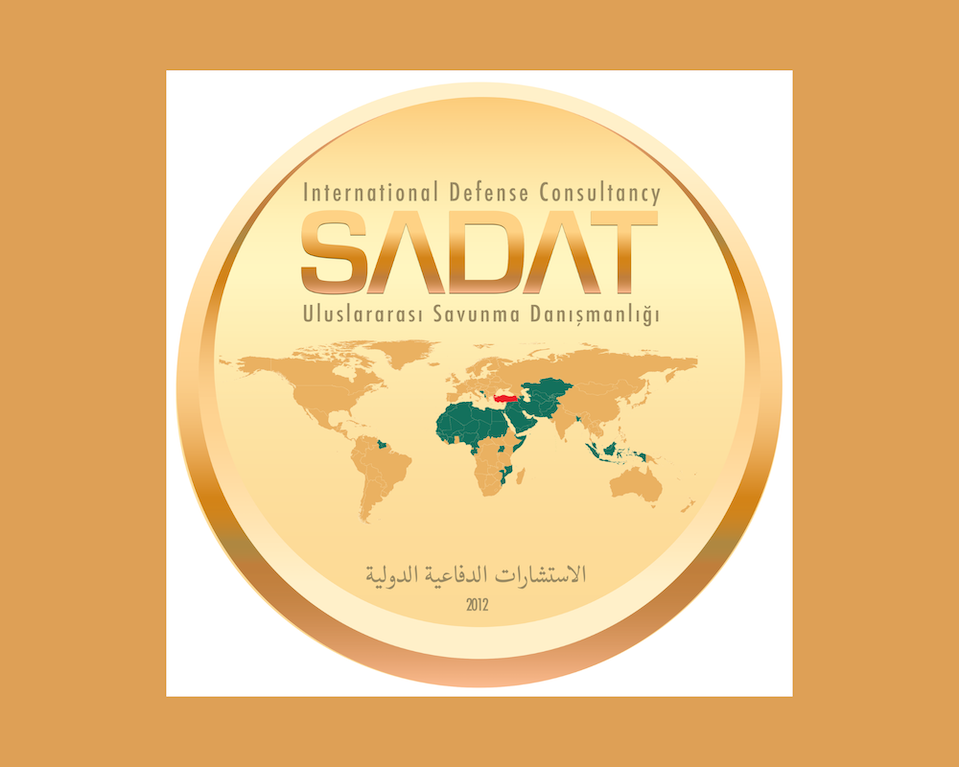The TAF (TURKISH ARMED FORCE) remains the sole organized military institution responsible for upholding the state’s monopoly on legitimate violence in Turkey. For now, we need not worry about SADAT or any other organization becoming like Wagner. However, when considering the “danger of Wagnerization,” there is a more significant and concerning aspect that should come to mind instead.
SADAT Inc. International Defense Consultancy is a privately-owned Turkish PMC based in Istanbul, Turkey. Established in 2012 by former brigadier general Adnan Tanrıverdi, it is the country’s first domestic military consultancy firm.
The company has been a subject of controversy, facing allegations from anti-government sources. These allegations include claims of supporting the establishment of a private army loyal to President Tayyip Recep Erdoğan. SADAT is believed to maintain close cooperation with the Turkish National Intelligence Organization (MIT).
A straightforward connection has been established within Turkey between the recent Wagner issue and SADAT. For instance, Kemal Kılıçdaroğlu, the leader of the Republican People’s Party (CHP), claimed that SADAT is Turkey’s equivalent of Wagner.
This perspective gained considerable traction on social media, suggesting that SADAT could potentially rise against the Turkish Armed Forces (TAF) and cautioning us to be vigilant.
Is that the case? It is important to note that there is no real comparison between Wagner and SADAT. Wagner operates as a paramilitary organization with uniformed soldiers, a hierarchical structure, equipment, training facilities, shelters, heavy weaponry, and active involvement in conflicts worldwide, resembling an army.
In contrast, SADAT lacks such military capacity, and the current legal framework in Turkey does not permit the formation of such a structure.
In other words, the TAF remains the sole organized military institution responsible for upholding the state’s monopoly on legitimate violence in Turkey. For now, we need not worry about SADAT or any other organization becoming like Wagner.
However, when considering the “danger of Wagnerization,” there is a more significant and concerning aspect that should come to mind instead. For this, we need to revisit history.
Falih Rıfkı Atay (1894–1971), a famous Turkish journalist, writer, and politician, made his military service as a private secretary officer of the 4th Army and Syria-Palestine General Commander Cemal Pasha, a notable Ottoman military leader and one of the “Three Pashas” [the so-called triumvirate composed of Cemal, Enver and Talat] who ruled the Ottoman Empire during World War I.
During his military service, Atay conducted perceptive and noteworthy observations regarding the state of the Ottoman army and its officers, which he later compiled in his remarkable work titled “Zeytindağı” (Mount of Olives). Zeytindağı was the location of the headquarters of the Fourth Ottoman Army.
In this influential document, Atay shed light on the political fragmentation among Ottoman military officers, a peril that resonates with our current moment:
“Each strongman had his own loyal group of followers. As these groups expanded, they could be referred to as the Enver Pasha team, Talat Pasha team, and Cemal Pasha team. As such, two distinct factions emerged on Zeytindağı, known as ‘The officers of the Fourth Army headquarters’ and ‘Cemal Pasha’s men’.”
Falih Rıfkı made a chilling observation with his final statement, highlighting the fragmentation within the army headquarters. On one side, there were officially appointed officers, while on the other side, there existed another group referred to as “Cemal Pasha’s men,” who were perceived to enjoy certain privileges.
It is not difficult to predict what such a split in the command-and-control relationship led to.
But this historical knowledge has nothing to do with the present day.
Under the “presidential government system”, President Erdoğan assumed the ultimate authority over the Turkish Armed Forces (TAF). While he delegated some tasks to the Minister of National Defense, the minister either made significant decisions directly based on the President’s instructions or, preemptively anticipating the President’s preferences, acted accordingly, without explicitly seeking instructions from him.
In this new governmental system, the military decision-making mechanisms within the National Security Council, the Supreme Military Council, the General Staff HQs, and the HQs of the force commands that had been established over the decades were largely rendered ineffective and dormant.
Personnel recruitment, appointment and promotion processes were the areas most affected by this system change. Military cadet, officer and non-commissioned officer recruitment was carried out through a highly politicized and ideological system of references. Thousands of new personnel from 2016 onward were recruited in the TAF within this system.
If we take the year 2016 as a reference point, it is important to note the significant number of individuals who were admitted to military schools during these seven years, as well as those who became officers directly after completing their civilian university education.
It is within this group of new officers that the executive base of the professional management of the Turkish Armed Forces (TAF) primarily rests, particularly in the ranks of first and second lieutenants.
The transformation in personnel policies extended beyond this aspect, encompassing significant changes in staff officer training and the overall promotion systems for generals and admirals.
In this process, the criterion for evaluation shifted from merit to loyalty, with loyalty directed towards the President himself rather than the State and the Law.
Consequently, the middle and upper echelons of military leadership were compelled to demonstrate a notable degree of alignment with Erdogan’s political choices.
Simultaneously, in accordance with the nature of a transitional phase, certain elements from the “Ancien Régime” persisted among the military staff, who maintained a Republican, Kemalist and secular stance.
As a result, today we find ourselves confronted with a complex amalgamation, or even an enigma, lacking adequate information regarding both its numerical composition and its political alignment.
This situation mirrors the words of Falih Rıfkı Atay, as we struggle to distinguish between the “officers of the 4th Army” and “Cemal Pasha’s men”.
To make matters worse, we lack insiders like Falih Rıfkı who can relay their observations to us.
HERE To read the original version of this article published in Free Turkihs Press on first of July

